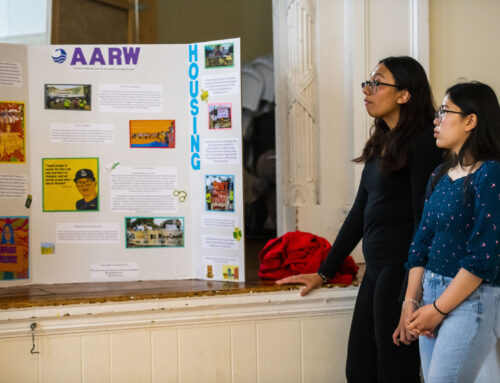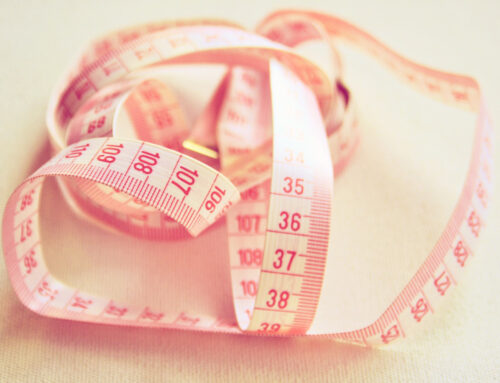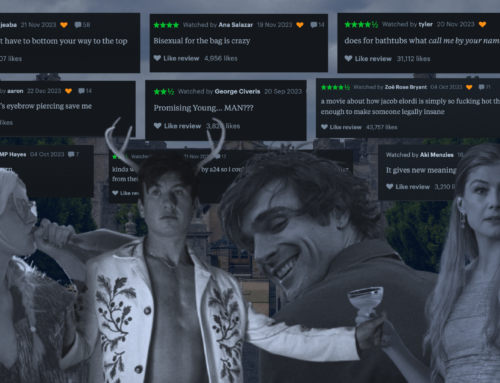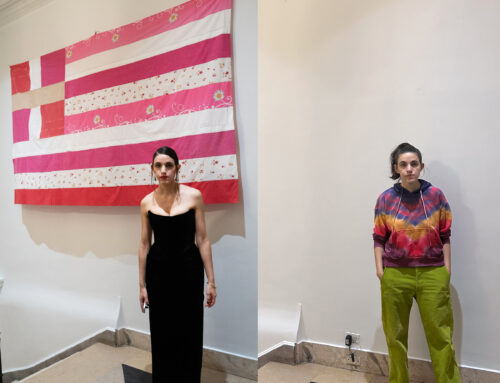
As a 17-year old junior in high school, Jamie Margolin is not of voting age, but she has made waves of impact beyond the casting of a vote. Jamie Margolin is a climate and social justice activist in Seattle, Washington, who is also the founder of Zero Hour. Zero Hour is a grassroots organization and movement bringing together young activists to amplify the conversation around climate and environmental justice, and to protect a healthy environment and ensure a livable future.
Growing up, Jamie had always been terrified by climate change, seeing its destruction impact her life. But after the 2016 election did not go the way she had expected, Jamie realized that the protection of our environment was in even more danger. Being a young person, climate change is not something that can be ignored, because as Jamie explains, “If we don’t have a livable earth, livable planet, nothing else matters.” She began to organize her community and went to the state capital where she would lobby, try to get bills passed, and testify at bill hearings.
A year later in 2017, Jamie saw the destructive results of climate change unfold before her eyes. With catastrophic climate events, such as Hurricane Maria and Harvey, and more locally to Jamie, wildfires in Canada blew smog over Seattle for two weeks, Jamie was pushed to act even further than she had been already—she needed to expand her activism to a national level. A post on social media announcing her plans to hold a Youth Climate March in Washington DC sparked a wave of young voices reaching out to her to join on her mission. With that, Zero Hour was formed, named because it is zero hour to act on climate change.
Zero Hour is a majority young women of color led organization with its goal being to offer an imminent sense of climate emergency and just solutions to the climate crisis. On July 21, 2018, the culmination of a year of hard work resulted in the powerful, groundbreaking Youth Climate March. Standing in pouring rain, a thousand young activists marched with posters and chants, demanding climate action. The success of this march ignited a movement of youth action, bringing climate justice to the forefront of political discussion. Since then, Zero Hour has not ceased to act. In addition to lobbying and educating all year round, Zero Hour is hosting a Youth Climate Summit in Miami, FL, a city facing huge climate disasters, from July 12-14, 2019.
Zero Hour focuses on tackling systems of oppression—patriarchy, capitalism, colonialism, and racism—which are social issues inseparable from climate issues, as the root of the climate crisis. Jamie explains that indigenous people were doing a great job keeping the world intact, until colonists came and introduced the idea that everything was for sale and could be turned into a profit, such as air and water—things that should be free for everyone. But while the people in power are profiting off of the practice of capitalism, victims of racism and poverty are more targeted. As Jamie says, “It’s much easier to build a pipeline through an indigenous reservation than Beverly Hills.” Thus, the organization also works to promote marginalized voices, which are the groups mainly being affected by the climate crisis. By amplifying marginalized voices through lobbying, protests, and conversations with politicians, it is Jamie’s hope that politicians and the public can become more educated and aware of this cause of climate change, one that is often turned a blind eye to.

Zero Hour not only a national organization but a close community of young activists. Through Facetimes, texts, conference calls, and emails, the Zero Hour activists have created momentum in climate action all the while forming close friends and relationships. Being a female-led non profit, Jamie understands the importance of female voices in climate action. More vulnerable and often displaced, women are more affected by the climate crisis. As women are one of the marginalized groups being affected, Jamie states, “Those who are most affected need to be on the front lines of the solution.”
When the Washington state government approved a lot of new fossil fuel infrastructure on indigenous lands, Jamie immediately came into action. She saw that their actions were in violation of the Public Trust Clause in their state constitution, which says that the resources of the state need to be protected for prosperity, that they can’t be used up and not leave anything for the next generation. Thus, Jamie sued her home state, teaming up with Our Children’s Trust, an organization that files lawsuits on behalf of young people against governments when their rights to a stable climate system are being infringed upon. They declared the actions of Washington unconstitutional in the denial of a livable future for the state’s youth. Yet, the state dismissed the case—telling the youth involved to just be optimistic that the legislators will protect the environment.

Often times, Jamie has felt trivialized by politicians and even other lobbyists, who view her as a young girl who should not be worried or involved in these matters. She’s been referred to condescendingly as “sweetie” and even called out for her Hispanic identity—told by an older woman that she can’t say “Hola” because we’re in America. However, no matter the resistance young activists may face from older counterparts, it is imperative that the younger generation becomes involved in climate action. Jamie declares that “We have to use our moral authority on this issue to drive the needle towards change.” As inhabitants of this Earth, young people need to join their elders in promising a livable future.
Through social media and the Internet, Jamie says most of her peers are aware of the climate issue, but not everyone acts upon it. Because there’s a lack of a curriculum that accurately reflects this issue taught in schools, Zero Hour volunteers help educate classrooms and communities across the country about the root of climate change, giving listeners a starting point on how to take action on climate change. Jamie suggests that young people who aren’t of voting age like herself join community organizations, join organizations like Zero Hour—which is always accepting volunteers, and practice acts of civil disobedience when a law is unjust. Jamie also encourages young people to do research and watch documentaries. Some of the resources she recommends includes, the documentary “Awake, A Dream from Standing Rock”, any movie by Naomi Klein, and the organization Project Drawdown. Ultimately, on top of education, young people must “organize and vocalize”, which are the foundational actions towards change.
A lot of inaction regarding climate change unfortunately stems from its politicization. Jamie explains that during the 1980s, climate change was a bipartisan issue and politicians were able to work collaboratively against environmental destruction. However, as fossil fuel corporations began to donate to the Republican party, they fell into the trap of corporate greed. She also attributes media as having a role in the politicization of climate change, constantly presenting it as a two sided debate and perpetuating false narratives when it should instead focus on the issue as a whole.

Through Zero Hour, Jamie can create change beyond politics and the boundaries of passing laws. The organization has built community efforts and solutions that has given politicians more to consider and more young voices to hear from. Jamie says that the progress to preserve the planet is not wanted, but needed. In order to continue living on a non-toxic Earth some of the massive changes that need to happen include transitioning off of fossil fuels onto a clean energy source, stopping deforestation and replanting all the forests we’ve cut down, and eliminating large scale factory farming.
With Jamie’s immense impact and involvement with youth climate action, it’s easy to forget that Jamie is still a high school junior. In asking how she balances both her high school life in addition to her activism, Jamie replies, “I don’t.” Jamie admits that it is definitely hard to balance both her school work and the running of a national organization, as she often falls behind on one or the other. But she is clear about where her priorities lie—she’d much rather save the planet than do her Algebra homework.
Follow Jamie On:
Read the full interview in Issue 2: Innovation here.
Buy a print copy of Issue 2: Innovation here.



